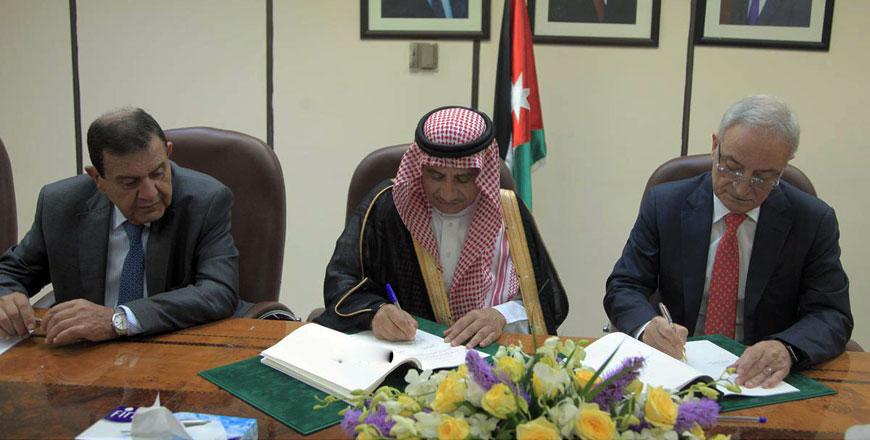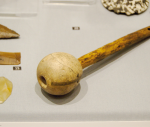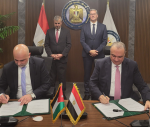You are here
Arab Monetary Fund extends $58m to Kingdom
By JT - Jul 10,2015 - Last updated at Jul 10,2015

Arab Monetary Fund Director General Abdulrahman Bin Abdullah Al Hamidy and Finance Minister Umayya Toukan sign a loan agreement worth $58 million in Amman on Thursday (Petra photo)
AMMAN — The Finance Ministry and the Arab Monetary Fund (AMF) on Thursday signed a loan agreement for the Kingdom worth $58 million (around JD41 million).
Finance Minister Umayya Toukan, who signed the agreement on behalf of the government, said the loan will be used to support the structural reform of the public finances, a year-long programme starting from July, 2015, the Jordan News Agency, Petra, reported.
He added that the structural reform programme is in line with the government’s economic correction policies aimed at ensuring balance in the national economy and speeding up the pace of comprehensive and sustainable economic growth.
The programme also aims at creating job opportunities and enhancing the economy's performance, Toukan said, noting that the government, during the programme’s term, will continue implementing financial reforms to improve the process of preparing the general budget, increase financial revenues and develop the efficiency of public expenditure.
AMF Director General Abdulrahman Bin Abdullah Al Hamidy, who signed the agreement on behalf of the fund, said the agreement echoes the good relations between Jordan and AMF, especially since reforms implemented by the government are credible and help stimulate economic growth.
Hamidy added that this loan will increase the total value of loans AMF has so far extended to the Kingdom to around $607 million.
He also noted that bilateral cooperation is not limited to financing, as some 500 Jordanian financial and economic experts have benefited from training courses at the AMF’s Institute of Economic Policies, according to Petra.
The Abu Dhabi-based AMF is an inter-governmental regional Arab financial organisation. Its main objectives are to help correct flaws in the balances of payment of member countries, promote the stability of exchange rates among Arab currencies and the development of Arab financial markets.
Related Articles
AMMAN — The government and the Arab Monetary Fund (AMF) on Thursday signed a loan agreement for 23 million Arab accounting dinars, equivalen
The Arab Monetary Fund (AMF) should take into account the political and financial conditions of countries that are surrounded by unrest, such as Jordan, to help them overcome challenges, Prime Minister Abdullah Ensour said on Saturday.
AMMAN — The Finance Ministry on Thursday signed a $40 million automatic loan agreement with the Arab Monetary Fund (AMF) to support the paym













